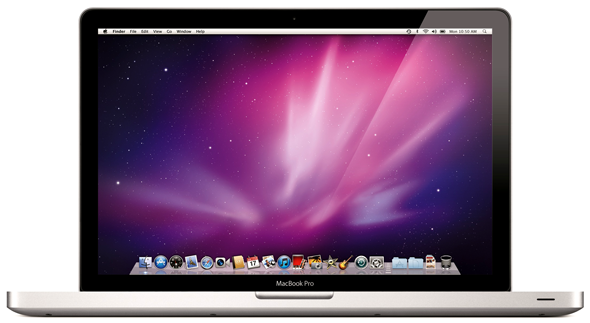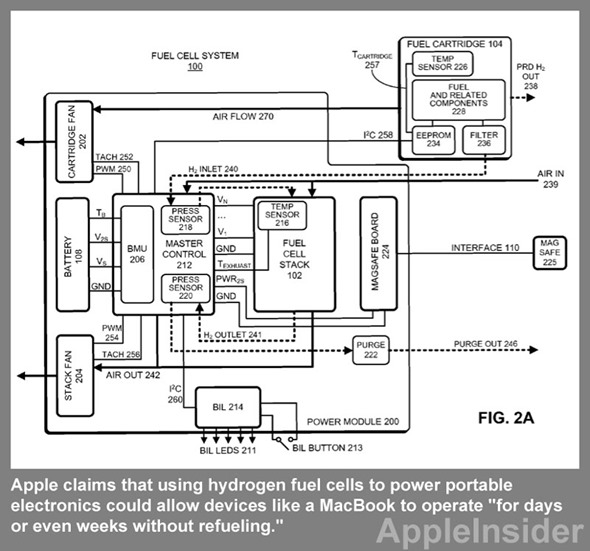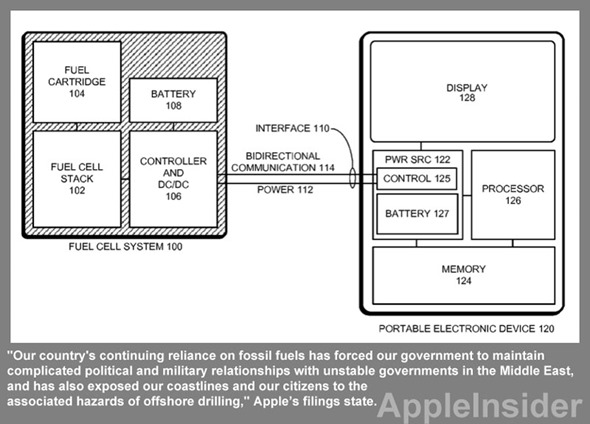My MacBook Pro has about ten hours of battery life before it dies off. As soon as the battery indicator turns red, I rush looking for an outlet and plug it in. Sometimes I’m away from home, on on the road or on an airplane, making it impossible to charge it. If Apple has their way, that may no longer be a problem.

Discovered by AppleInsider, a series of patents applications submitted by Apple demonstrate their intent on using fuel cell technology for the next generation of computing devices. Although the technology is still in the works and may take years to complete, the patent application is an important first step. The pair of patents go hand in hand:
- FUEL CELL SYSTEM TO POWER A PORTABLE COMPUTING DEVICE
- FUEL CELL SYSTEM COUPLED TO A PORTABLE COMPUTING DEVICE
Following Apple’s idea of a fuel cell system, the next generation of MacBooks would last weeks instead of hours. The fuel cell wouldn’t run on fuel, but on hydrogen, working with an existing power source inside each computer. Apple outlines the need for a change within their first patent, calling out the current way as a dangerous method.


They explain how the United States has a reliance on fossil fuels, creating a stressed and complicated relationship (both political and military) with unstable governments in the Middle East. Apple also outlines how coastlines and citizens have been affected by the hazards of offshore drilling. They do offer a solution, although for now limited to their MacBooks:
Hydrogen fuel cells have a number of advantages. Such fuel cells and associated fuels can potentially achieve high volumetric and gravimetric energy densities, which can potentially enable continued operation of portable electronic devices for days or even weeks without refueling. However, it is extremely challenging to design hydrogen fuel cell systems which are sufficiently portable and cost-effective to be used with portable electronic devices.
It may be some time before we can see a smaller MacBook with a longer battery life. There are many hurdles involved, including the development process itself, but most importantly, creating it in a cost effective way. Keep tuned to Redmond Pie, we’ll be sure to keep you updated on the latest hydrogen fuel cell plans. For now, I have to charge my MacBook.
You may also like to check out:
- New Apple Patent Suggests 3D Gestures For Easy Data Sharing Between iPhone, iPad, iPod touch
- Apple Patents Shatter-Proof Shock Mounted Glass For iPhone, Aims To Save It From Severe Crashes
You can follow us on Twitter, add us to your circle on Google+ or like our Facebook page to keep yourself updated on all the latest from Microsoft, Google, Apple and the web.

